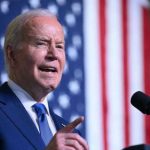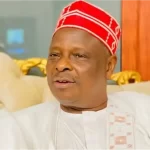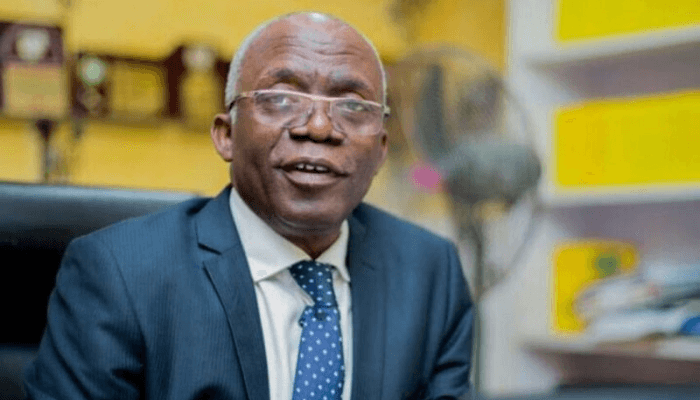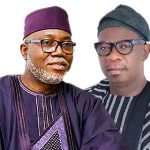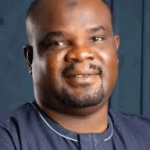By Oladipupo Awojobi
Nigeria, Africa’s most populous nation and one of its largest economies, has been grappling with issues that have perioically led to calls for constitutional review.
Since the 1999 Constitution was implemented at the dawn of Nigeria’s return to democracy, various political, ethnic, and social groups have argued that the constitution is inadequate for the complexities and unique needs of the country. As a result, there has been a growing push for a comprehensive constitutional review to address pressing issues, including power devolution, resource control, electoral reforms, and socio-economic rights.
The foundations of Nigeria’s 1999 Constitution
Nigeria’s 1999 Constitution was created during a military regime and has been criticised for being more of a “military decree” than a people-centered document. Critics argue that it does not fully reflect the democratic principles or federalist structure that Nigeria requires, as it was neither drafted with significant public input nor subjected to a referendum. Its limitations, according to advocates of a review, stem from the lack of diverse representation in its creation process, which has led to lingering issues of centralisation and inefficiency.
Key issues driving call for Constitutional Review
Power devolution and federalism
Nigeria is a federal republic, but many argue that the existing constitution overly centralises power in the federal government, which has stifled local development and led to inefficiency. Proponents of restructuring want more powers devolved to the states, enabling them to manage resources and take charge of certain policies without waiting for federal intervention. Devolution advocates believe this would enable each state to better address its unique needs and develop at its own pace, fostering healthy competition and reducing federal dependency.
Resource control and economic rights
The Niger Delta, Nigeria’s main oil-producing region, has long called for constitutional amendments that grant resource control to individual states. Currently, all mineral resources are federally owned, with revenue shared among states. Many argue that this system unfairly benefits the central government at the expense of resource-rich states, which bear the environmental and social burdens of extraction. A constitutional review could allow states to have more control over their resources, addressing grievances in the Niger Delta and encouraging other states to develop their local economies.
Electoral reforms
Electoral transparency and fairness are cornerstones of any democracy, and Nigeria’s constitution has struggled to enforce these principles effectively. Many citizens have criticised the high incidence of electoral fraud, manipulation, and violence that characterise elections in Nigeria. Calls for constitutional review often include demands for stricter electoral regulations and reforms, which could establish independent mechanisms to monitor elections, protect voters’ rights, and ensure that elections are free from violence and manipulation. These changes, advocates argue, are crucial for enhancing Nigeria’s democratic integrity.
Judicial reform and independence
Judicial independence is another major area where the current constitution is seen as inadequate. Nigeria’s judiciary has faced political interference, with appointments often influenced by the executive branch. A constitutional review could redefine judicial appointments and oversight to ensure the judiciary’s independence. This would strengthen the rule of law and create a legal system that commands respect from citizens and upholds accountability across all levels of government.
Protection of socio-economic rights
The constitution is also criticised for its limited provisions on socio-economic rights, such as the right to education, healthcare, and social welfare. Though fundamental rights are enshrined in the constitution, they are often seen as aspirational rather than enforceable. A constitutional review could expand and guarantee these rights, making it the duty of the government to ensure adequate access to essential services, which is critical for reducing poverty and inequality in Nigeria.
The push for constitutional review:
Perspectives from different groups
Calls for constitutional review come from a wide range of groups, each with unique perspectives. Ethnic minorities, particularly from the Niger Delta, have long sought more control over their resources and development. Southern and Middle Belt regions have been vocal about the need for devolution of power, seeing it as essential for balanced growth. Conversely, some groups in the North argue for maintaining a strong central government, cautioning that excessive devolution could create inequality among states with varying levels of resources.
Civil society organidations, legal experts, and human rights activists have also championed constitutional review, advocating for changes that would embed human rights protections and ensure government accountability. Youth groups, increasingly active in politics, have joined the calls, stressing that reforms are crucial to securing a future for the country’s young population, which is increasingly disillusioned with the political system.
Challenges and oppositions
While the call for constitutional review is growing, it faces significant challenges. Political elites benefiting from the status quo may resist changes that would dilute their power. Additionally, constitutional amendments in Nigeria require substantial legislative support, needing a two-thirds majority in both the National Assembly and State Houses of Assembly, making broad consensus essential.
There is also the question of trust. Many Nigerians are skeptical that a constitutional review process would genuinely reflect public interests, fearing it could be used as a political tool rather than an opportunity for genuine reform. Furthermore, there are concerns about national unity, as some fear that the restructuring could lead to regional divides, risking political fragmentation.
Experts speak
Calls for a comprehensive constitutional review in Nigeria have gained traction among citizens, advocacy groups, and political stakeholders. Many experts agree that Nigeria’s 1999 Constitution—originally crafted during a military era—needs reform to reflect the needs of a modern democracy, one marked by significant ethnic diversity and regional complexities. Here’s what leading constitutional experts, legal analysts, and political scientists have to say on the matter, shedding light on the necessity, challenges, and potential outcomes of a constitutional review.
Dr. Sam Amadi, a constitutional law expert and former chairman of the Nigerian Electricity Regulatory Commission (NERC), emphasised that true federalism requires greater autonomy for states. “A critical flaw of the current constitution is its over-centralisation of power,” says Amadi. He argues that the constitution places too much authority at the federal level, hindering states’ ability to manage resources and govern independently.
Amadi and other proponents believe that devolving power to states would foster economic competitiveness, allowing regions to address their unique challenges more effectively. “We need a constitution that can accommodate regional growth.
“By empowering states, we could see economic growth spurred by local resources and a reduced dependency on the federal government,” he said.
Professor Okey Ibeanu, a political scientist and former INEC commissioner, pointed out that a fairer system of resource control is essential for addressing long-standing grievances, especially in the Niger Delta region. “The current constitution centralises resource control, which has left resource-producing states feeling marginalised and under-compensated,” he noted.
He argued that amending the constitution to allow resource-producing states to retain a larger share of revenues could lead to better infrastructure, education, and health services in these areas.
Ibeanu believes that increased resource control by states could mitigate environmental damage, as local governments are more invested in sustainable practices. “With more control over their resources, states could adopt policies that protect their environment while also supporting local economies,” he explained.
Oh her part, Ayo Obe, a prominent human rights lawyer and former president of the Civil Liberties Organization (CLO), highlighted the need for robust electoral reforms to address persistent issues of voter intimidation, manipulation, and fraud. “The constitution needs provisions that will secure the integrity of our electoral system.
“We need stricter mechanisms to ensure transparency in elections, including a more independent electoral commission and clearer provisions on electoral offenses,” she said.
She also emphasised the importance of judicial autonomy in adjudicating electoral disputes. “The judiciary must be empowered and insulated from political influence to fairly resolve electoral matters. This is fundamental for any democracy that seeks to earn the trust of its people,” Obe added.
Given Nigeria’s growing security challenges, Dr. Kabir Adamu, a security expert and Managing Director at Beacon Consulting Limited, argues for constitutional provisions allowing states to establish their own police forces. “Centralised policing has proven inadequate for addressing localised security issues, particularly in rural areas and conflict-prone regions,” he asserted.
Dr. Adamu explained that allowing states to set up their own police forces would lead to quicker response times, better community relations, and tailored security solutions. “We need to restructure the constitution so that states can take ownership of their security concerns. The federal government alone cannot effectively police a country as vast and diverse as Nigeria,” he said.
Dr. Akin Oyebode, a constitutional law professor, stressed that judicial independence is critical for a functional democracy. “Without a truly independent judiciary, all other efforts for reform become meaningless,” he argued. Oyebode advocated for reforms that protect judicial appointments from political interference, ensuring that judges can make impartial decisions without fear of repercussions.
Addressing the issue of socio-economic rights, a Human rights advocate and Senior Advocate of Nigeria (SAN) Femi Falana argued for stronger constitutional protections for socio-economic rights, such as the right to healthcare, education, and social security.
“Nigeria’s constitution mentions socio-economic rights, but it treats them as aspirational rather than enforceable,” Falana said.
He argued that these rights should be actionable, allowing citizens to hold the government accountable for failing to provide essential services.
“Socio-economic rights are fundamental to reducing poverty and inequality in Nigeria,” he insisted. “Constitutional reform should ensure that these rights are no longer merely idealistic but enforceable by law,” he said.
Professor Jibrin Ibrahim, a political scientist at the Centre for Democracy and Development (CDD), warned that political elites benefiting from the status quo may resist changes. “The reality is that many of those in power may be reluctant to endorse reforms that could dilute their influence,” he said.
He suggested that a comprehensive and transparent review process, involving civil society, local communities, and advocacy groups, will be necessary to overcome opposition.
Dr. Ibrahim also recommended incorporating public consultations and possibly a referendum to legitimize the process. “If the people feel that they own the process, they are more likely to support it. Inclusivity is key,” he added.


